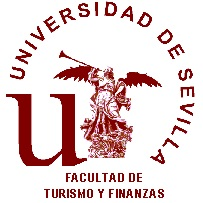TMS 2022 will be more sustainable than ever |
|
|
The organisers of the TMS Algarve 2022 are committed to holding an environmentally responsible event and we are working closely with our partners to plan and implement a conference that will reflect green event best practices. The aim is to minimise the environmental impacts and maximise the social benefits of the event. The key actions being undertaken are: 1. Hybrid conference. Hybrid conferences have the advantage of taking place physically, therefore contributing to the economic and social sustainability of the region where it is held, including all local stakeholders, and, on the other hand allowing the online participation of attendees that for different reasons cannot or do not wish to travel to the conference. Especially in the case of attendees that would need to fly long distances to attend the conference, the reduction of the GHG emissions generated by the conference will be significant. 2. Transportation: We encourage all participants, organisers and other stakeholders to find the most environmentally friendly way to come to the venue. This may include taking only short-haul flights and/or public transportation and sharing car rides. The conference organisation will manage carpooling among participants that travel by car. 3. Green conference management: The conference management is fully committed to organising a sustainable conference in close coordination with conference stakeholders. Actions will be taken to assure this commitment. The use of paper or plastic will be reduced to nearly zero. There will be recycling bins in the public areas of the event. The marketing of the event and the communication with the participants will be made exclusively by electronic means. All scientific publications related to the event will be electronic as well. 4. Venue and accommodation: The venue will be the closest to the main points of arrival of the participants, amongst all venues in the region with suitable conditions for hosting the conference and a strong environmental commitment. On the other hand, the venue will offer also suitable and affordable accommodation for the conference participants, making it not only very convenient for the participants but also eliminating the need for transportation during the days of the event. 5. Catering: There will be two types of catering at the conference: the meals and coffee breaks provided by the hotel; and the gastronomic events organised by our students of hotel management under supervision of their lecturers. Among these events are the tasting of local products during coffee breaks, and the gastronomic events outside the hotel on the evening of the 16th of November. Concerning the catering provided by the hotel, it will be assured that no plastic bottles will be used (preference will be given to tap water, which is good, served in jars) and to regional products. There will be also vegetarian options and we will consider all previously communicated food restrictions of participants due to religious or health reasons. 6. Waste management: recyclable waste will be recycled. The conference venue and the hotel will dispose of recycling bins in the main public areas and staff and participants will be asked to recycle whenever possible. 7. Food leftovers: Leftovers of good unused food will be donated to REFOOD, a non-profit organisation that helps people in need. 8. Carbon offset initiative: It is the intention of the conference organisers to lead/join an initiative, together with our students and ZOOMARINE, to plant 200 trees in the region to, in the long term, partially offset the carbon emissions generated by the TMS ALGARVE 2022. This symbolic action is also aimed at awareness raising in the region for the importance of environmental issues and conservation. 9. Monitoring and reporting event sustainability: Monitoring each step of the event organisation will allow sustainable improvements in each process of the current and future editions of the conference. Measuring and reporting the environmental footprint of the event and the achievements in terms of sustainability will build credibility and provide data on which future meetings can be improved. It also provides data for scientific publications on event sustainability and sustainable behaviours. 10. Benefits: Sustainable events should offer benefits to the environment, to the host region and all involved:
|
Copyright © 2022. José António C. Santos, TMS conferences, ESGHT/UALG, Campus da Penha, Faro, Portugal.






